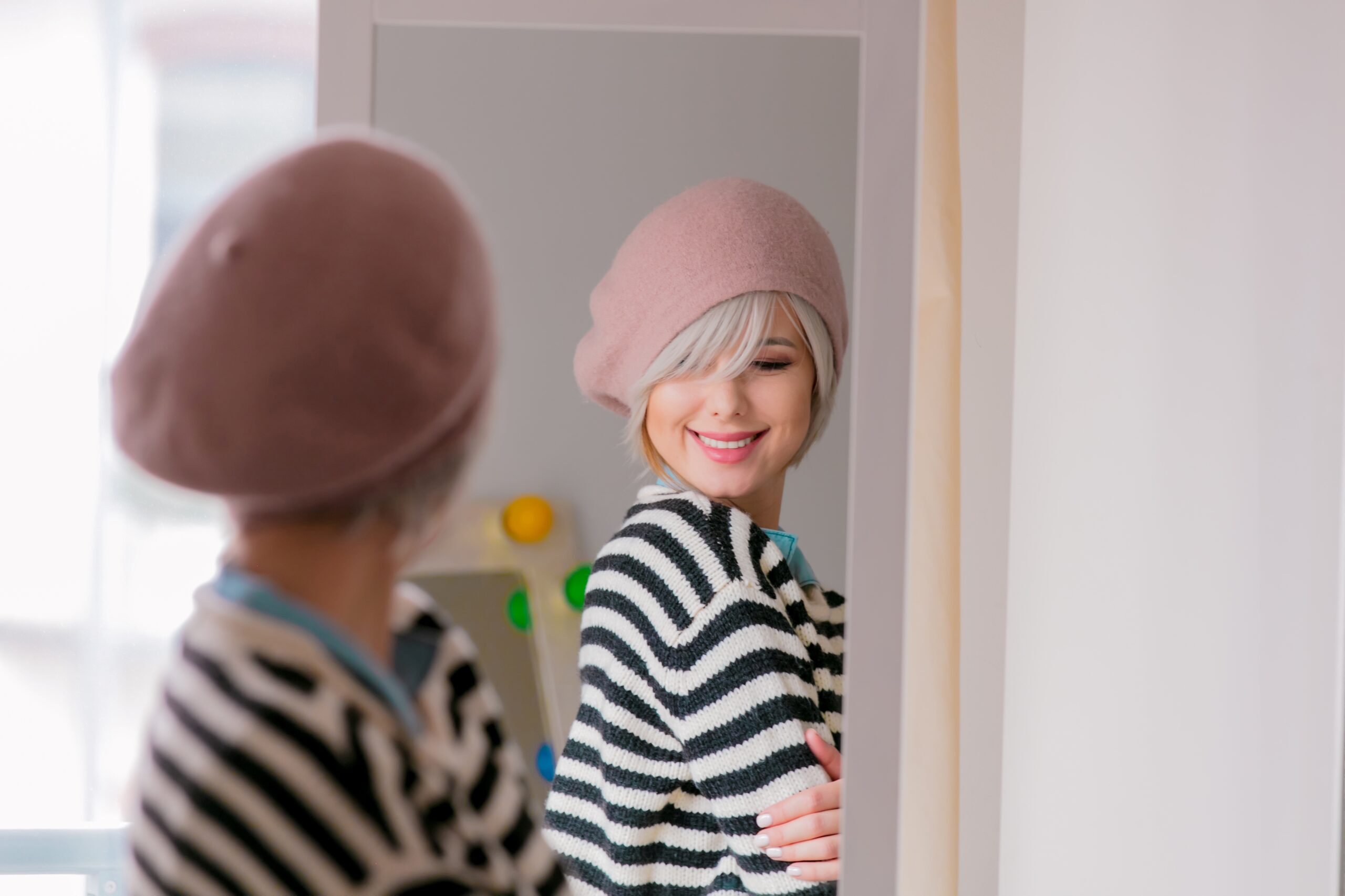
Body image is how you view yourself, both in the mirror and how you see yourself in your mind. It’s all about your beliefs, memories and assumptions about your appearance. It often includes how you feel about your body shape, height, weight, fitness, style, clothes and how you move.
First of all, did you know that every human being has body image? It is normal for this to change depending on lots of different factors, such as your environment and how the people around you can influence your feelings about yourself, and even how much sleep you’ve had.
When you’re growing up, especially in your teenage years, lots of changes take place in your body and brain. Hormones are released such as oestrogen, progesterone, and testosterone which affect moods, emotions and impulses alongside the physical changes on the body. These changes can make you feel more aware of how you look, how other people around you look and might sometimes make you feel stressed or worried.
You could be struggling with your body image if:
- How you look is taking up a lot of your thought space
- You feel consistently negative about how you look or how others see you
- You feel self conscious or uncomfortable
- You are comparing yourself to other people, especially when your belief is that others look better than you
- You feel pressured to look like your friends or people you follow on social media
- You are changing your diet or exercise routine due to how you feel you look
Tips
- Identify the things you like about yourself, making sure there is a blend of physical and non physical, such as ‘I like my eye colour, I like that I’m a good friend etc.
- Make a list of the things you accept about how you look- it’s alright not to love everything
- Know that it’s normal to not feel brilliant about how you look all the time
- Remember that everyone has a different view of beauty and what this looks like
- Recognise that there isn’t a right or wrong way to look
- Focus on what your body can DO, not just how it looks. Notice when you walk, carry something, dance, swim, run, or give someone a hug
- Images on social media don’t always reflect real life; often many hours go into producing these images, including digital alterations, re-touching and filtering. Remind yourself of this when you catch yourself saying ‘I wished I looked like that’
- Spend time with people who make you feel good about yourself
- Remember that people are usually much more harsh on themselves than others, try to think of how you would advise a friend
- Self care isn’t selfish- do what you need to look after yourself and be happy and healthy
- People who care about you will appreciate you for who you are, not how you look
- Speak to people you trust, such as your family, friends or a teacher about the way you are feeling
- Visit your GP if your thoughts about body image are worrying you or getting worse or if you are concerned about your eating or exercise routine. They will be able to understand your thoughts, let you know about people who could help you and may advise treatment to help
Support
If you have an eating disorder, or someone in your family does, look up b-eat for information and support www.b-eat.co.uk
Helpline number for under 25’s: 0808 801 0711 (Daily 3pm-10pm) Email: fyp@b-eat.co.uk
Young Minds Crisis Messenger offers free 24/7 support if you are experiencing a mental health crisis. Text YM to 85258
If you’re under 25 you can talk to The Mix for free on the phone, by email or on their webchat. You can also use their phone counselling service, or get more information on support services you might need.
www.themix.org.uk, Freephone: 0808 808 4994 (13:00-23:00 daily)
Shout is the UK’s first free 24/7 text service for anyone in crisis anytime, anywhere. It’s a place to go if you’re struggling to cope and you need immediate help. Text Shout to 85258

